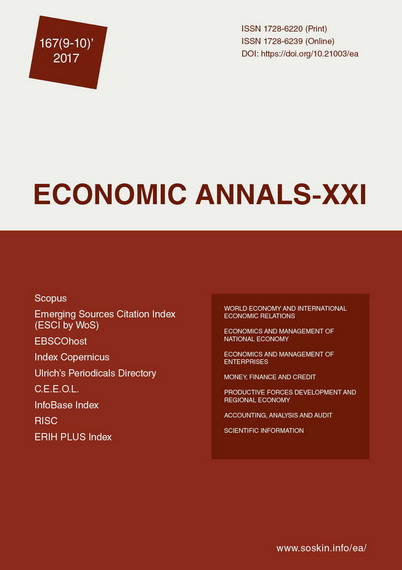Romanian enterprises behaviour in the process of improvement of economic and financial disclosure quality
Romanian enterprises behaviour in the process of improvement of economic and financial disclosure quality
Author(s): Veronica Grosu, Marian Socoliuc, Elena HlaciucSubject(s): Economy, Accounting - Business Administration
Published by: Institute of Society Transformation
Keywords: Disclosure Quality; Financial and Non-financial Reporting; IAS/IFRS; European and National Accounting Regulations;
Summary/Abstract: Introduction. This research is focused on the quality of financial and non-financial reporting of Romanian companies. Regarding Romanian companies, the lack of transparent information is visible compared to other EU member states. In Romania, it is common practice to keep some information on financial and economic results obtained secret, and requests to communicate the information to partners are not commonly encountered. The objective of our case study is focused on the analysis of the quality disclosure in reporting based on a sample of 70 companies from Romania which were investigated by means of a questionnaire consisting of 17 questions in 2011-2016. The first part of the questionnaire includes questions regarding the importance of volunteering disclosure and contribution of information in the reporting company in relation to the interests of company reporting. The second part consists of 8 questions about internal data and information of the company and the sector in which it operates. Results. The findings concerning the reporting of financial and accounting information indicate that more than one half of the surveyed companies reported additional financial accounting information. Regarding the attitude of the analysed companies towards the appropriateness of introducing a management report which will include a breakdown of information provided through financial reports, most of the companies, first of all those micro and small ones, were reticent and gave negative answers. Considering the behaviour shown by the analysed companies, we found slight differences between the features considered important for different types of users of accounting information. For managers, the most important feature was relevant and accurate representation. Investors and shareholders, as well as managers, are also interested in relevant and accurate representation. Long-term creditors show a slightly higher interest for verifiability, comparability and accuracy of representation. Conclusion. Advanced disclosure quality of both qualitative and quantitative information in reporting is of high significance for modern Romanian business. With this regard, we created the drawing prerequisites of an efficient model of disclosure. The proposed procedure, which includes qualitative and quantitative information, can influence the quality of reporting including the events and transactions registered after reporting (IAS 10), changes in the policies and accounting errors (IAS 8), peculiarities occurring during the assessment and communication of the value of intangible or tangible assets, the difference between the market value of the company and its book value, the presence of fictitious assets, the presence of fair value or optional fair value for financial instruments, etc.
Journal: Економічний часопис - ХХІ
- Issue Year: 167/2017
- Issue No: 09+10
- Page Range: 63-69
- Page Count: 7
- Language: English

